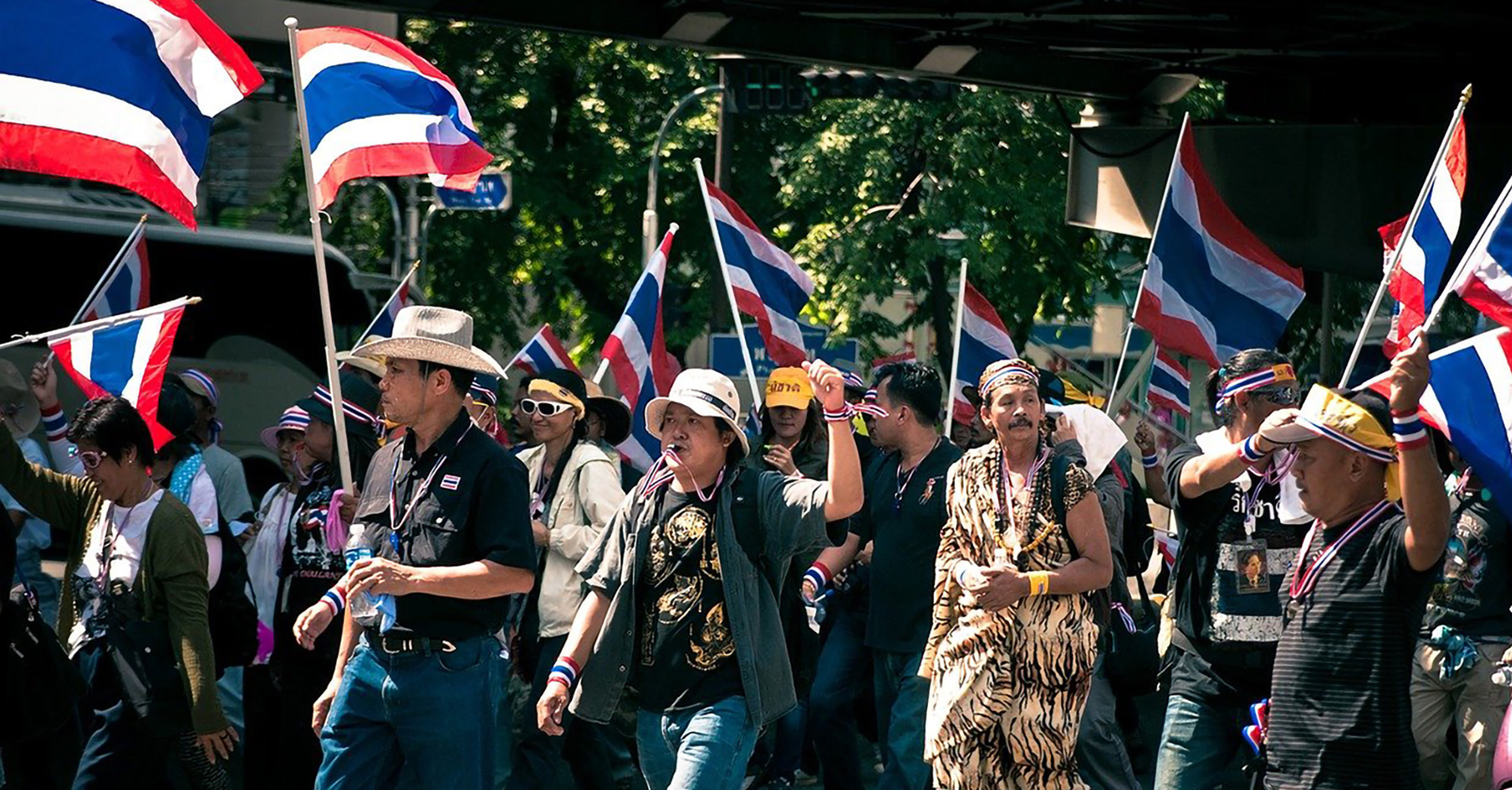Securitization during the pandemic: providing safety or suppressing democracy?

Securitization during the pandemic: providing safety or suppressing democracy?
As the pandemic unfolded earlier this year, lockdowns were implemented across the globe, with emergency powers being implemented and securitization heightened. These social measures were put into place to reduce the spread of Covid-19 and ensure the safety of the global population. However, are all governments using these powers for the good of their nation?
Panelists at the 2020 Paris Peace Forum (PPF) discussed this during the debate, Protecting rights, resisting securitized responses to the pandemic: learning from the past to bounce back better. Hosted by University of Minnesota Law Professor, Fionnuala Ní Aoláin, the panel included Sirikan ‘June’ Charoensiri (human rights lawyer and activist), Patrick Gaspard (president of the Open Society Foundations), and Claudia Lopez (Mayor of Bogotá, Colombia).
When emergency powers work to benefit the people
In cases where emergency powers were implemented correctly, the outcome has been positive in safeguarding public health without compromising human rights. The capital of Colombia, Bogotá, is a prime example of this. Claudia Lopez, Mayor of Bogotá, discussed at the panel the way in which her office handled the outbreak of the coronavirus.
Mayor Lopez formed a response based on the premise that human life takes first priority in her city, and everything else is secondary. This began by assembling a highly qualified scientific team and following their recommendations, increasing medical capacities (including intensive care units and daily testing), a learning and civic campaign (including ensuring that masks are worn appropriately) (Charoensiri et al., 2020), and innovative ideas such as constructing an additional 84km of bike lanes in order to reduce overcrowding on public transport (WHO, 2020). Despite a resultant financial deficit in the city following the pandemic (Charoensiri et al., 2020), these measures contributed to Colombia having a lower Covid-19 mortality rate than other South American countries (De la Hoz-Rostrepo et al., 2020).
In order for all of these measures to be carried out successfully, it was necessary to maintain a positive relationship between state powers and the public. Commenting on Bogotá’s intrinsic ‘civic culture,’ Lopez attests the success of controlling Covid-19 to engaging successfully with the public, stating that “Every measure we have taken so far has included 70% of the city’s people” (Charoensiri et al., 2020). This system shows a unified approach of state enforcements and public action has been key.
The case of Bogotáhas proven that securitization can be utilized in a way that is beneficial to maintaining the safety of its people during a state of national emergency. However, there have also been examples where the implementations of security powers are being exploited with the intent to limit democratic movements.
Suppressing activism: the situation in Thailand
Human rights lawyer and activist, Sirikan ‘June’ Charoensiri, shared with the panel the events that have been unfolding in Thailand since the start of the pandemic. For over seven months, Thailand has been under an emergency decree, which is claimed to be in place to control Covid-19 and prevent a second wave. These emergency security measures include the prohibition of gatherings and assemblies, and the prevention of dissemination of information which may cause fear among the public (Charoensiri et al., 2020).
However, in more recent months, Charoensiri comments that these emergency powers are being used to suppress democratic and grassroots movements in the country, leading to violations and abuses of human rights (Charoensiri et al., 2020).
Anti-government protests in Thailand started emerging last year, following the court banning of the opposition political party. The protests came to a halt with the emergence of Covid, however, restarted in July. The resurgence of pro-democracy movements included those seeking the reform of the Thai monarchy (Tostevin and Birsel, 2020).
According to Charoensiri, these largely youth-organized grassroots movements and peaceful protests, which have been scattered throughout the nation, are still being undermined by the ruling powers. The government is exploiting people’s fear through implementing emergency powers in restricting these movements, with protesters being arrested and facing imprisonment (Charoensiri et al., 2020). Fifteen prominent activists are currently facing criminal charges, facing up to 15 years in prison (Ratcliffe, 2020).
Finding the balance
The contrasting responses to the pandemic highlight the importance of striking a balance between security and democracy. Of course, one must acknowledge the different socio-political landscapes of Colombia and Thailand. However, the comparison showcases the successes and failures which are present through the utilization of emergency powers within a time of crisis. Whilst one region epitomizes the reward of using powers to work with and for the benefit of the people, the other shows how they can be manipulated to restrict democratic action.
President of the Open Society Foundations, Patrick Gaspard, stated that we must ‘reject the false dichotomy of security and rights.’ Mayor Lopez seconds this sentiment; referring to the suppression of democratic protests, she stated that “the distinction is not based on science political records” (Charoensiri et al., 2020).
As many people in Thailand continue to peacefully fight for their beliefs, we are reminded of the ripple effects that the pandemic has had throughout the globe. It has proven that whilst some nations have come together in the face of adversity, others are being torn apart. As Gaspard stated, the impact which Covid-19 has had on repressing civil society’s ability to speak highlights that now is the time to step up, review policies and push for governments to be more accountable (Charoensiri et al., 2020).

Article by
Costadina Tsoukala-Steggell

And by
Sarah Marine Surget

Categories


